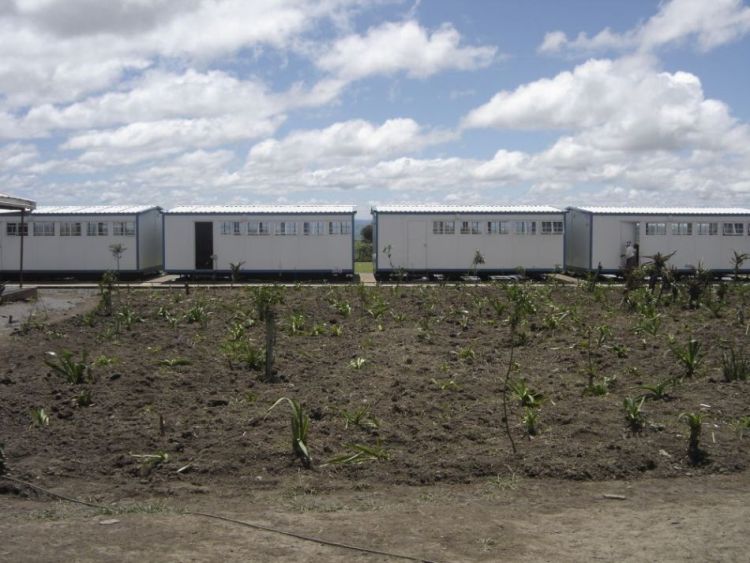In 2015 the Northern Cape had a Matric pass rate of 69.4%, placing it 6th out of South Africa’s eight provinces.
In a study carried out by the Public Services Commission in 2016, it was found that dilapidated teaching spaces and overcrowded classrooms were some of the challenges impacting quality learning in the province.
To address these issues Kwikspace Modular Buildings, in partnership with the Department of Education, has installed 100 new classrooms, six grade R classrooms, 50 ablution blocks and six admin buildings at schools throughout the region.
Also read:Kwikspace Modular in housing supply at ROMPCO site
The use of modular construction methods provided a rapid solution to the need for additional teaching space and Kwikspace was able to fully prefabricate each classroom in their specialist factories within days. The structures were then delivered to site where they could be installed and ready for use in a matter of hours and with minimal disruption to learning.
Kwikspace classrooms provide a comfortable and safe learning environment. The wall panels have a dense polyurethane core that is fire retardant and offers excellent noise reduction and thermal insulation. The structures have a rigidised Chromadek skin that’s strong and easy to maintain, giving the units a lifespan of approximately 20 years.
Comments Roberto Campos, Kwikspace Sales Executive: “Modular classrooms can be rapidly deployed and installed with minimal disruption to learners, making them the perfect solution to South Africa’s education crisis.”
In 2016, out of all eight provinces, the Northern Cape saw the most significant improvement in Matric pass rate with an impressive 82.2% of learners making the grade.
This bumped the province up to fifth place, signalling that the Department of Education’s efforts in the area, such as the prompt provision of additional teaching facilities, were starting to bear fruit.
